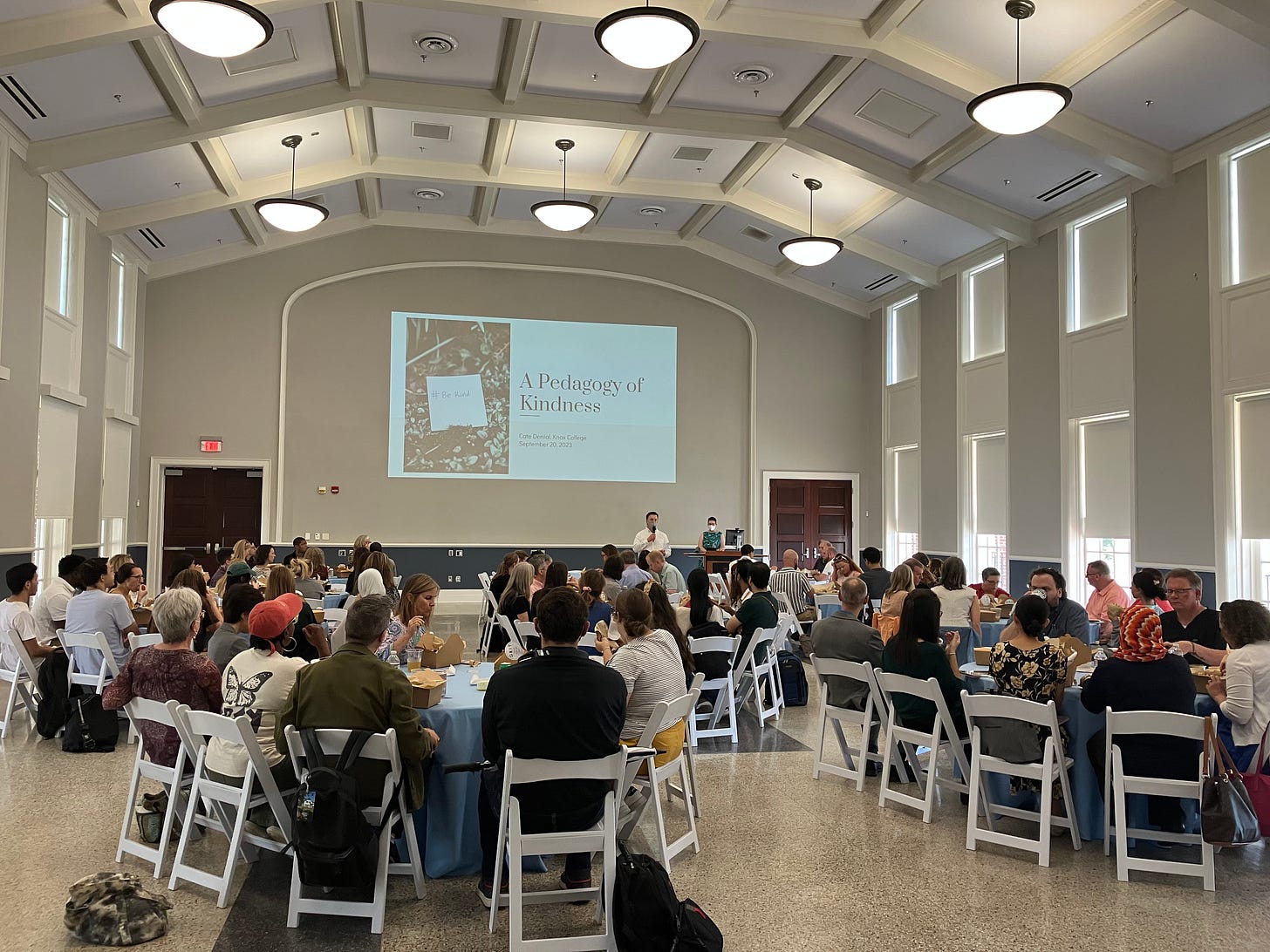
Things have slowed down quite a bit here on the University of Mississippi campus. This week, I’m enjoying the quiet and working on a few writing projects before diving into fall planning next month.
I’m also thinking about future posts here. Thanks to all of you who used the poll in the previous post to vote on what kinds of topics you’d like to see. The most popular selections were “generative AI and ungrading” and “recent research on ungrading.” I’ve got a lot to say about both of these things, so expect more soon. I’m especially excited to tell you about the work I encounter at this year’s Grading Conference, where there is a whole track for education research. The conference, which opens June 13, is virtual, affordable, and a great place to learn more about recent work on alternative grading.
For now, I thought I would share some of what I’m reading this summer, along with other recommendations for the alternative grading community. Here are some things I plan to dive into (or return to) over the next few months:
Schoolishness: Alienated Education and the Quest for Authentic, Joyful Learning
Susan D. Blum
If you’ve done any reading at all about ungrading, chances are you’ve read the 2020 collection on the subject that Susan edited, which was influential for me in my own ungrading journey. Susan’s new book is not about grading specifically, nor is it a how-to guide. But I think it does lay a foundation (and make the case) for more progressive practices, like ungrading, through its 30,000-foot view of the problems with modern schooling. This background is hugely important, and I’m looking forward to diving in. I’m also curious about the adjectives in the title. How might we move from “alienated” to “authentic” and “joyful” schooling—particularly at a time when generative AI threatens to further disrupt the human connection that powers education and flood the zone with even more fakery?
A Pedagogy of Kindness
Cate Denial
I’m looking forward to
’s book, arriving in July, for similar reasons. The book advocates for a higher education built on kindness (distinguished from “niceness”) rather than one that prioritizes “individualism and competition.” From where I’m standing, individualism and competition are both huge problems for grade reform, so I’m interested to see what Cate (also an ungrader!) has to say about them. I’ve already heard her speak a little about pedagogies of kindness when she conducted a workshop here at UM last fall. It was a wonderful conversation, and one that I’ve heard many instructors reference in the intervening months. Clearly, Cate’s ideas have staying power!Off the Mark: How Grades, Ratings, and Rankings Undermine Learning (but Don’t Have To)
Jack Schneider and Ethan L. Hutt
I’m a little late to the party here, as this book came out last August. It’s a realist treatment of how our current assessment technologies came into being, how they undermine learning, and why they’ve proven so intractable. I’ve been reading it intermittently for the last month or so, and it seems to be coming to some very dismal conclusions about whether or not we can get ourselves out of this mess. Honestly, I’ve found it to be a very frustrating read—sometimes because I think the authors are dead wrong and sometimes because I think they’re dead right and I’m mad about it. Anyway, I’m slowly working my way through it. And whether or not you agree or disagree with the book’s conclusions, it’s a thought-provoking read that’s worth the engagement.
Grading for Growth: A Guide to Alternative Grading Practices that Promote Authentic Learning and Student Engagement in Higher Education
David Clark and Robert Talbert
Okay, so I’ve already read this one; it actually came out last summer. But it’s been a useful reference guide for me as an educational developer who consults with faculty interested in reworking their grading. It has a heavy STEM focus and more material about standards-based and specifications grading than about the kind of grading I do. But I highly recommend it for anyone interested in reworking your grading, no matter what your discipline or preferred method. The authors have also been key sources of inspiration for me through their Grading for Growth blog:
wrote the post that inspired this blog to begin with and gave me the idea for my course progress tracker.Verified: How to Think Straight, Get Duped Less, and Make Better Decisions about What to Believe Online
Mike Caulfield and Sam Wineburg
This one isn’t about grading—it’s about navigating the current media and information landscape. I gave it a quick read when it came out last year, but I’ll be returning to it in advance of my fall Writing 101 course (and the 2024 election…). Texts like Verified are indispensable for writing classes in which students are learning how to conduct credible research, support their arguments with strong evidence, or evaluate the arguments of others. I especially like the framing of the book for my own class, where I stress to students that I want them to gain the kind of critical thinking skills that allow them to see through advertisers or bad actors who are trying to manipulate them. But I think teachers of many subjects would find the book useful for their own courses, especially in the age of generative AI. Like Cate,
spoke to instructors at UM last year, and had a lot of interesting work to share.What are you reading this summer? What books would you recommend for the alternative grading community? I’d love to hear from you in the comments.





You and I seem to have similar reading tastes! I have both "A Pedagogy of Kindness" and "Verified" in my To Read list. Here's to summer reading!
I'm determined to finished Schoolishness, too, along with: Laziness Does Not Exist (Devon Price) and Critical Teaching Behaviors (Lauren Barbeau/Claudia Cornejo Happel's book). I also really, really need to read Emergent Strategy (adrienne maree brown), FINALLY. Among many, many others...